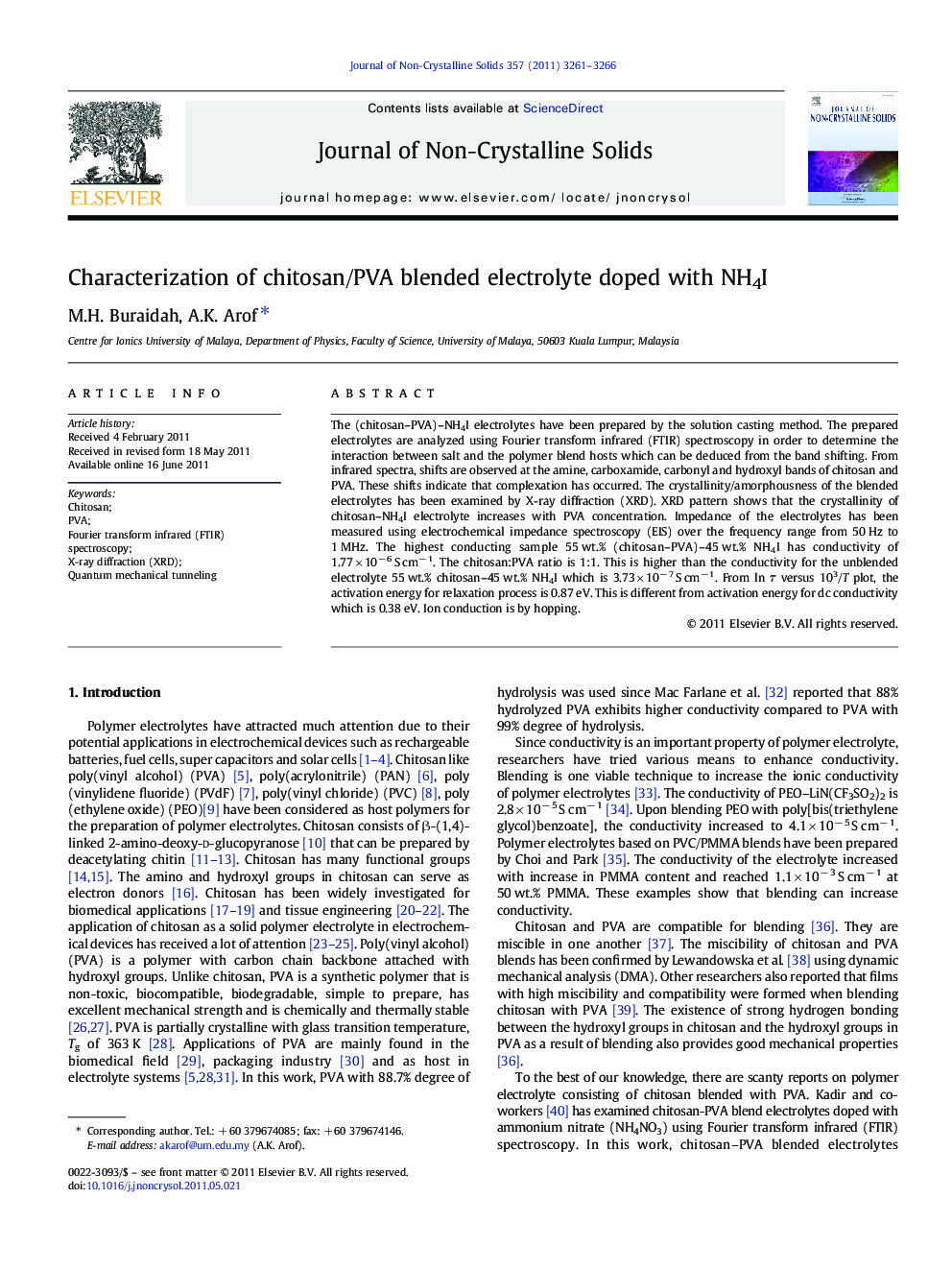| کد مقاله | کد نشریه | سال انتشار | مقاله انگلیسی | نسخه تمام متن |
|---|---|---|---|---|
| 1482541 | 1510483 | 2011 | 6 صفحه PDF | دانلود رایگان |

The (chitosan–PVA)–NH4I electrolytes have been prepared by the solution casting method. The prepared electrolytes are analyzed using Fourier transform infrared (FTIR) spectroscopy in order to determine the interaction between salt and the polymer blend hosts which can be deduced from the band shifting. From infrared spectra, shifts are observed at the amine, carboxamide, carbonyl and hydroxyl bands of chitosan and PVA. These shifts indicate that complexation has occurred. The crystallinity/amorphousness of the blended electrolytes has been examined by X-ray diffraction (XRD). XRD pattern shows that the crystallinity of chitosan–NH4I electrolyte increases with PVA concentration. Impedance of the electrolytes has been measured using electrochemical impedance spectroscopy (EIS) over the frequency range from 50 Hz to 1 MHz. The highest conducting sample 55 wt.% (chitosan–PVA)–45 wt.% NH4I has conductivity of 1.77 × 10− 6 S cm− 1. The chitosan:PVA ratio is 1:1. This is higher than the conductivity for the unblended electrolyte 55 wt.% chitosan–45 wt.% NH4I which is 3.73 × 10− 7 S cm− 1. From ln τ versus 103/T plot, the activation energy for relaxation process is 0.87 eV. This is different from activation energy for dc conductivity which is 0.38 eV. Ion conduction is by hopping.
Research highlights
► Conductivity increased in the polymer electrolyte blend system.
► Less NH4I accommodated in blended host as PVA concentration increases.
► Activation energies of conductivity and relaxation process are not equal.
Journal: Journal of Non-Crystalline Solids - Volume 357, Issues 16–17, August 2011, Pages 3261–3266